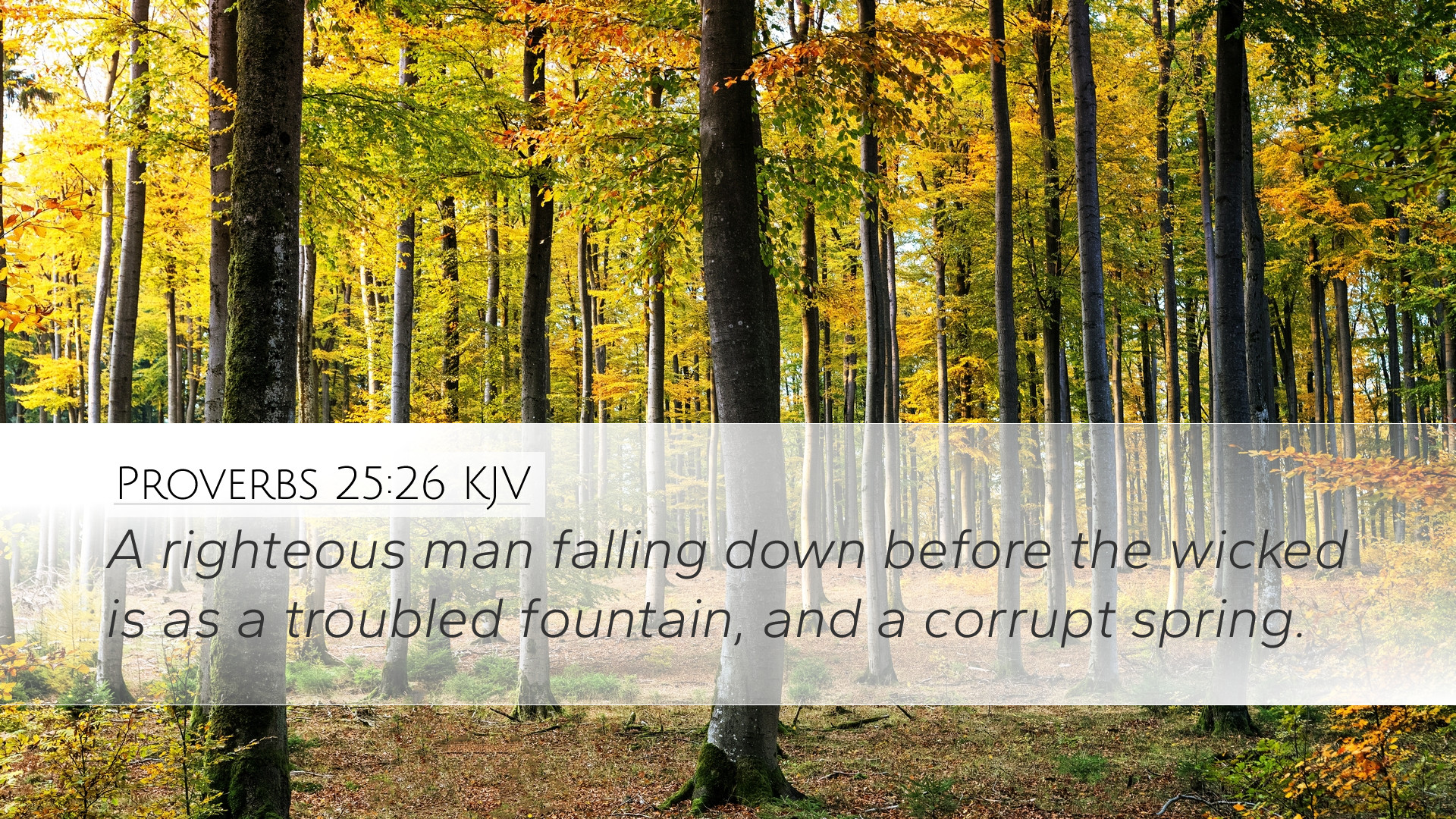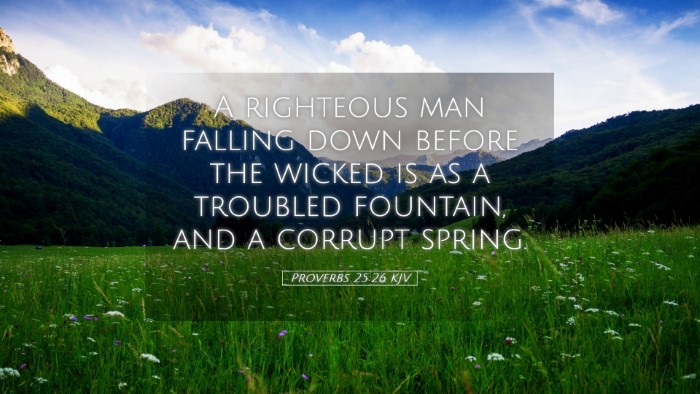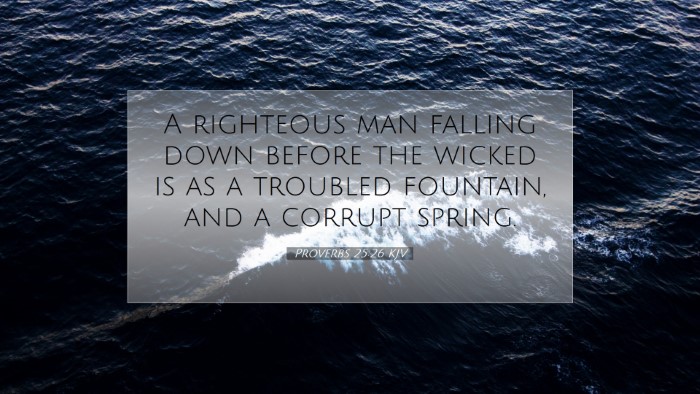Proverbs 25:26 Commentary
Verse: "A righteous man falling down before the wicked is as a troubled fountain, and a corrupt spring."
Introduction
This verse from the Book of Proverbs offers a profound metaphor regarding the moral integrity of individuals and the implications of their actions in society. It highlights the clashes between the righteous and the wicked and draws a striking comparison to natural elements—fountains and springs—representing purity and corruption. Wisdom literature, such as Proverbs, often employs vivid imagery to elucidate deeper spiritual truths. In this commentary, we will draw insights from notable public domain sources to unpack the implications of this verse.
Contextual Analysis
Understanding Proverbs 25:26 requires a grasp of its broader context within Proverbs. This collection of sayings imparts ethical and moral advice, often contrasting the behaviors and outcomes of the righteous and the wicked. The previous verses in chapter 25 deal with various themes including leadership, judgments, and social relations, while this verse serves to cement the deterioration of righteousness in the face of evil.
Matthew Henry's Insights
Matthew Henry, in his classic commentary, approaches this verse by examining the implications of a righteous person’s downfall. He states that when a righteous man compromises or succumbs to wickedness, it has a gravely negative impact on society, akin to a fountain that becomes disturbed and muddy. Henry elaborates that the "troubled fountain" symbolizes not only the loss of the individual's integrity but the wider ramifications for communities dependent on the righteousness of their leaders and representatives.
Albert Barnes' Perspective
Albert Barnes adds richness to this commentary by emphasizing the idea of a "righteous man" as someone who consistently upholds moral principles. When such a person is seen "falling down" before the wicked, it suggests a submission or yielding that ultimately taints their virtue. Barnes notes that the "corrupt spring" serves as a warning—illustrating how the erosion of righteousness can lead to moral decay, affecting not just the individual but the broader societal fabric. This unfortunate decline can cause faith and virtue to seem unreliable, much like a polluted water source.
Adam Clarke's Commentary
Adam Clarke provides further enlightenment by considering the natural element of water in this metaphor. He notes that a fountain that is "troubled" or a spring that becomes "corrupt" reflects a lack of purity. Clarke argues that the wicked’s influence can lead the righteous into dangerous waters, affecting their judgments and leading to a dilution of their moral standing. He warns of the consequences when the righteous mix with the wicked, suggesting that their purity should be preserved, much like a clear spring is essential for sustaining life.
Theological Implications
From these commentaries, several theological implications emerge:
- Moral Responsibility: The verse underscores the responsibility of the righteous to uphold their integrity as a duty not only to themselves but to the community at large.
- The Danger of Compromise: It cautions against the influence of the wicked and suggests that even a righteous individual can face adversity if they compromise their moral stand. This idea resonates throughout scripture where the faithful are called to remain steadfast despite external pressures.
- Community Impact: The health of a community is directly proportional to the righteousness of its people. A troubled fountain, representing moral failure, taints not just the individual but aims to corrupt the water supply of truth and integrity for all.
Practical Applications
As we consider how Proverbs 25:26 applies today, several practical applications emerge:
- Leading by Example: Leaders, especially in faith communities, must remember that their integrity has a ripple effect. Those in positions of influence are called to exemplify righteousness to inspire others.
- Maintaining Distinctiveness: Believers are reminded to guard against moral compromise in interactions with the wicked. This includes the prioritization of ethical practices in all spheres of life—socially, professionally, and spiritually.
- Restoration and Healing: For those who may have faltered, the message encourages repentance and restoration. Just as troubled water can be purified, individuals can seek grace to be renewed in their moral positions.
Conclusion
Proverbs 25:26 serves as a poignant reminder of the critical nature of righteousness in a world often swayed by wickedness. By analyzing this verse through the lens of trusted commentators, we see its relevance transcending time. The call for believers to remain steadfast in their faith, to uphold their moral compass, and to guard the purity of their actions cannot be overstated. In a spiritual landscape filled with challenges, this verse reaffirms the need for purity in belief and behavior, ensuring that those who follow God’s path may lead others toward a source of true life.


